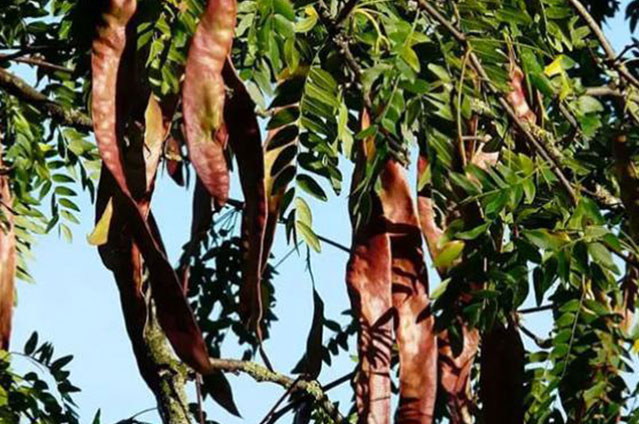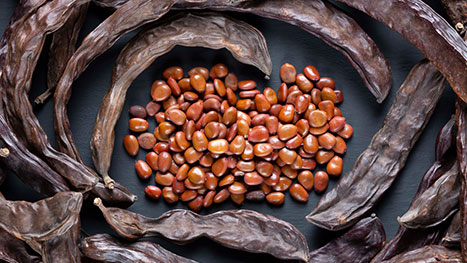
In Tunisia, carob trees are primarily cultivated in the northern and central regions, particularly in the governorates of Nabeul, Bizerte, and Kairouan. Their ability to tolerate extreme drought conditions makes them an ideal crop for the arid and semi-arid areas of the country.The production potential is considerable, with yields reaching 5 to 10 tons per hectare under optimal conditions.
Tunisian carobs are especially valued for their high content of natural sugars and dietary fibers. Moreover, the growing demand for natural and healthy products in international markets offers significant opportunities for Tunisian producers.

Nutritional Benefits of Carob
Carob is rich in natural sugars, dietary fibers, proteins, and essential minerals such as calcium, magnesium, and potassium. It is also low in fat, caffeine-free, and gluten-free, making it a preferred food for specific diets.



